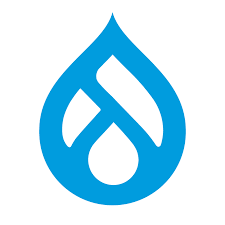Let’s fix the error the Drupal Coding Standard is not installed with our latest blog. Bobcares, as a part of our Drupal Software Development offers solutions to every query that comes our way.
Overview
- Resolving the Drupal Coding Standards Error in PHP CodeSniffer
- Why This Error Occurs?
- Steps to Fix the Error
- Testing Drupal Standards
- Conclusion
Resolving the Drupal Coding Standard is Not Installed Error in PHP CodeSniffer
If we’re encountering an error while performing code analysis or linting on the Drupal project, it’s likely due to missing or improperly configured Drupal coding standards tools. Ensuring the project adheres to these standards is essential for consistent, maintainable, and high-quality code. Here’s a comprehensive guide to understanding and resolving this issue.

Why This Error Occurs?
Drupal has specific coding standards implemented via tools like PHP CodeSniffer. The error typically arises when:
Drupal coding standards are not installed.
- PHP CodeSniffer can’t find the Drupal coding standards due to incorrect configuration.
- Conflicts between global and local installations of PHP CodeSniffer exist.
- Symlinks to coding standards are broken or missing.
Steps to Fix the Error
1. Install the Drupal Coding Standards
To set up the Drupal coding standards, use Composer:
composer require --dev drupal/coder composer require --dev dealerdirect/phpcodesniffer-composer-installer
drupal/coder: Contains Drupal’s coding standards.
phpcodesniffer-composer-installer: Automatically configures PHP CodeSniffer to recognize custom standards like Drupal’s.
2. Verify the Installation
Check if PHP CodeSniffer recognizes the Drupal coding standards:
vendor/bin/phpcs -i
Expected output should include:
Drupal: For enforcing Drupal-specific coding conventions.
DrupalPractice: For additional best practices in Drupal module development.
If these standards aren’t listed, there may have been an installation issue.
3. Set the Path to Drupal Standards (if Needed)
Manually configure PHP CodeSniffer to locate the Drupal coding standards:
vendor/bin/phpcs --config-set installed_paths vendor/drupal/coder/coder_sniffer
This ensures PHP CodeSniffer knows where to find the required standards.
4. Verify Symlinks (For Manual Installations)
If we manually installed the standards, ensure a valid symlink exists between the standards directory and PHP CodeSniffer. Check the symlink and recreate it if necessary.
5. Check PHP CodeSniffer Version
Ensure the PHP CodeSniffer version is compatible with the Drupal coding standards:
vendor/bin/phpcs --version
To update PHP CodeSniffer to the latest version:
composer update squizlabs/php_codesniffer --dev
6. Resolve Global vs. Local Installation Conflicts
Use the local PHP CodeSniffer binary (vendor/bin/phpcs) for project-specific checks.
Alternatively, ensure the global PHP CodeSniffer installation has access to the Drupal standards.
Run PHP CodeSniffer locally:
vendor/bin/phpcs --standard=Drupal /path/to/your/drupal/project
7. Clear PHP CodeSniffer Cache
Sometimes cached configurations can cause issues. Clear the cache with:
vendor/bin/phpcs --clear-cache
Testing Drupal Standards
After setup, verify the Drupal project adheres to the standards:
vendor/bin/phpcs --standard=Drupal /path/to/your/drupal/project
For best practices, use both Drupal and DrupalPractice standards:
vendor/bin/phpcs --standard=Drupal,DrupalPractice /path/to/your/drupal/project
[Looking for a solution to another query? We are just a click away.]
Conclusion
Properly configuring and maintaining Drupal coding standards in PHP CodeSniffer ensures the code meets the highest quality benchmarks. By following the steps above, we can troubleshoot and resolve any errors, setting up a streamlined environment for Drupal development.




0 Comments